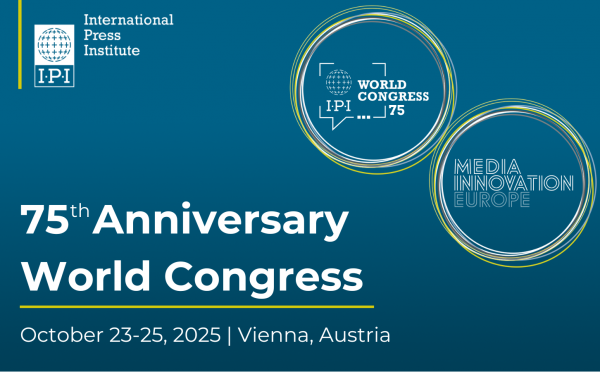A Mexican investigative journalist working for a prominent national newsmagazine was found beaten and strangled to death in her home in the Veracruz state capital of Xalapa on Satuday, news reports said.
Regina Martínez was the Veracruz correspondent for Proceso, a weekly publication considered to be one of the country’s leading sources for coverage of organised crime and drug trafficking. Authorities who were sent to the journalist’s home after neighbours noticed that her front door had been open all day found Martinez’s body in the bathroom, Proceso reported on its website.
News reports say Martínez had worked for Proceso for over 10 years, focusing on drug-related violence and alleged links between cartels and state and local politicians. She had previously been a reporter for Diario de Xalapa and a correspondent for La Jornada de Veracruz. One the last articles published under her byline covered the arrest by national marines of nine policemen in Veracruz believed to be colluding with traffickers.
Veracruz governor Javiel Duarte has ordered an investigation into her death and Gina Domínguez, a spokeswoman for the Veracruz state government, told the media, “All lines of investigation will be exhausted. The fact that she was a journalist is one of them.” Mexican media reported Monday that Duarte had requested assistance from the Mexican Attorney General’s office in investigating the apparent homicide.
Proceso published a seething response to Martinez’s murder, calling her death “the result of a rotten country, of a situation of everyday violence in which extreme acts are not the exception but the daily rule … this crime underscores the environment of hostility and even of harassment in which the independent press is obliged to carry out its work.”
Demanding a full investigation into the crime, the magazine added, “An act of aggression against any member of this publishing house is an attack against Proceso and against the constitutional right to inform.”
Mexico was the world’s most dangerous country for the media last year, with 10 journalists murdered because of their work there last year, according to the International Press Institute (IPI) Death Watch. Four of those deaths – one of which was a brutal home invasion – occurred in the state of Veracruz.
“We are shocked and saddened at the death of Regina Martínez and we offer our condolences to her family, friends and colleagues,” IPI Executive Director Alison Bethel McKenzie said. “While the complete spectrum of facts is not yet known, her killing serves as yet another reminder that there are few places on this planet more dangerous for journalists than Mexico.”
Bethel McKenzie added: “While we expect Veracruz officials to undertake a comprehensive investigation into the factors leading to Ms. Martinez’s death, we call upon the federal government and law enforcement to step up and demonstrate that the crimes against journalists and impunity for those who commit them will no longer be tolerated in Mexico.”
In Mexico, where local and regional authorities are often suspected of ties to organised crime, efforts to hold those responsible for crimes against the media have been hampered by a lack of federal involvement. Last month, however, Mexico’s Senate approved a bill that would federalise crimes against journalists, and on Sunday the office of the Interior Secretary issued a statement expressing the federal government’s “full preparedness to collaborate on, if necessary, in investigations undertaken by the authorities in the state of Veracruz” in Martínez’s case.
Last July, a female police beat reporter, Yolanda Ordaz de la Cruz, was found with her throat slit in Boca del Río, Veracruz, after receiving anonymous threats. In June, a prominent editor, Miguel Angel Lopez Velasco, was murdered along with his son – a news photographer – and his wife by gunmen who broke into their Veracruz home. Police last May discovered the body of journalist Noel López Ulguín in an unmarked grave after a drug gang leader confessed to kidnapping and killing Ulguín two months earlier.
News of Martínez’s death came as IPI released a special feature on the state of Mexican journalists written by Marcela Turati, herself an investigative reporter at Proceso. In her piece, Turati describes how Mexican journalists have become war correspondents within their own country.
Elsewhere in Latin America, French journalist, Romeo Langlois, was “taken prisoner” following a raid by guerrilla group, FARC (Revolutionary Armed Forces of Colombia), on Colombian soldiers in Caqueta, according to the French Foreign Minister, Alain Juppe.
Romeo Langlois, who works for France 24 TV channel, and Le Figaro newspaper, was making a documentary about the fight against illegal mining and drugs, according to the BBC. Reports by the Guardian and AP said that Langlois is a Colombian resident and a “war correspondent”. According to soldiers who were with him during the clash on April 28, Langlois was shot in the arm. Langlois accompanied Colombian troops as they sought to destroy cocaine laboratories, when they were confronted by a guerrilla unit. During the clash three soldiers and a police officer were killed, according to reports. According to AP, four soldiers and two police officers who went missing have since reappeared, but the whereabouts and condition of the journalist remain unknown.


